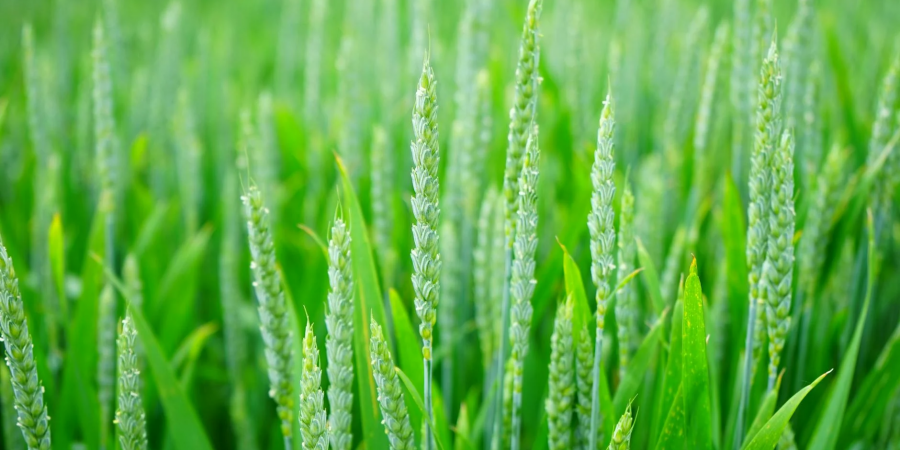

Agriculture is the practice of cultivating soil, producing crops, and raising livestock for food, fiber, and other products used to sustain life. It encompasses a wide range of activities, from preparing the soil for planting to harvesting crops, as well as animal husbandry practices. Agriculture plays a crucial role in providing food security, generating income, and supporting rural economies worldwide.
The current status of agriculture varies greatly depending on the region and country. However, some common trends and challenges can be observed globally:
Technological Advancements: Agriculture is becoming increasingly mechanized and digitized, with the adoption of technologies such as precision farming, drones, and biotechnology to improve efficiency and productivity.
Sustainability: There is a growing focus on sustainable agriculture practices to reduce environmental impact, conserve resources, and ensure long-term food security.
Climate Change: Agriculture is significantly impacted by climate change, with more frequent and severe weather events affecting crop yields, water availability, and pest pressures.
Food Security: Despite advances in agriculture, food insecurity remains a significant issue in many parts of the world, exacerbated by factors such as poverty, conflict, and inadequate infrastructure.
Globalization: Agriculture is increasingly interconnected globally, with trade playing a significant role in the food supply chain. This can create both opportunities and challenges for farmers and food systems.
Rural Development: In many regions, agriculture is crucial for rural development, providing livelihoods and supporting local economies. However, rural areas often face challenges such as limited access to markets, services, and infrastructure.
Challenges: Farmers face various challenges, including fluctuating market prices, access to credit and inputs, land degradation, and pests and diseases.
Opportunities: There are also opportunities in agriculture, such as growing demand for organic and sustainably produced food, technological innovation, and market diversification.
Overall, agriculture continues to be a critical sector for global food security, economic development, and environmental sustainability, but it also faces numerous challenges that require innovative solutions and collaboration across sectors.
If there were no agriculture, our situation would be dire. Agriculture is fundamental to human survival and civilization. Here's how our situation would be affected:
Food Shortages: Without agriculture, there would be severe food shortages, as we rely on farming to produce the majority of our food.
Economic Collapse: Agriculture is a major sector of most economies. Its absence would lead to economic collapse, as many people would lose their jobs and livelihoods.
Starvation and Malnutrition: The lack of food would lead to widespread starvation and malnutrition, particularly in regions where agriculture is the primary source of food.
Conflict: Competition for scarce resources, including food, could lead to increased conflict and instability.
Health Issues: Malnutrition and lack of access to food would lead to widespread health issues and increased susceptibility to diseases.
Environmental Impact: Agriculture also plays a role in environmental conservation and sustainability. Without it, ecosystems would be greatly affected.
In short, agriculture is essential for human survival, economic stability, and environmental sustainability. Without it, our situation would be extremely challenging and potentially catastrophic.
Learning about agriculture can be a fascinating and rewarding experience. Here are some steps you can take to start learning about agriculture:
Read Books and Publications: There are many books and publications available on various aspects of agriculture, including crop cultivation, livestock management, and sustainable farming practices. Look for books by experts in the field or publications from agricultural organizations.
Take Online Courses: Many universities and agricultural organizations offer online courses on agriculture. These courses cover a wide range of topics, from basic principles to advanced techniques.
Attend Workshops and Seminars: Look for workshops, seminars, and conferences on agriculture in your area. These events can provide valuable insights and networking opportunities with experts in the field.
Visit Farms and Agricultural Institutions: Visiting farms and agricultural institutions can give you a firsthand look at farming practices and techniques. You can also volunteer or intern at a farm to gain practical experience.
Join Agricultural Organizations: Joining agricultural organizations can connect you with other people interested in agriculture and provide access to resources and information.
Experiment and Learn by Doing: If you have access to a small plot of land, you can start experimenting with basic farming techniques. Planting a small garden or raising a few animals can be a hands-on way to learn about agriculture.
Stay Informed: Keep up with the latest developments in agriculture by reading news articles, research papers, and blogs related to agriculture.
Network with Other Farmers: Networking with other farmers can provide valuable insights and advice. Join online forums or local farming groups to connect with other farmers.
Seek Mentorship: Finding a mentor who is experienced in agriculture can be incredibly valuable. A mentor can provide guidance, advice, and support as you learn about agriculture.
Be Open to Learning: Agriculture is a vast and diverse field, so be open to learning from various sources and trying new things.
By taking these steps, you can start learning about agriculture and gain a deeper understanding of this important field.
Saving agriculture from extinction involves addressing several key challenges facing the industry. Here are some strategies that can help:
Promote Sustainable Practices: Encourage farmers to adopt sustainable agricultural practices that conserve soil health, water resources, and biodiversity. This includes practices such as conservation tillage, crop rotation, and integrated pest management.
Support Small-Scale Farmers: Provide support and resources to small-scale farmers, who often face the greatest challenges in agriculture. This can include access to credit, markets, and agricultural extension services.
Invest in Research and Development: Invest in research and development to develop new technologies and practices that improve agricultural productivity, resilience, and sustainability.
Improve Access to Markets: Improve small-scale farmers' access to markets by developing market infrastructure, improving transportation networks, and supporting farmers' cooperatives and associations.
Promote Crop Diversity: Encourage the cultivation of a diverse range of crops to improve resilience to pests, diseases, and climate change. This can include promoting traditional and indigenous crops that are well-suited to local conditions.
Address Climate Change: Mitigate and adapt to climate change by promoting climate-smart agricultural practices, such as agroforestry, rainwater harvesting, and the use of drought-resistant crops.
Reduce Food Waste: Address food waste throughout the supply chain to ensure that more of the food that is produced reaches consumers.
Educate and Empower Farmers: Provide education and training to farmers on sustainable agricultural practices, market access, and business skills to improve their livelihoods and resilience.
Support Agricultural Innovation: Support the development and adoption of innovative technologies and practices, such as precision agriculture, biotechnology, and digital farming, to improve productivity and sustainability.
Collaborate and Coordinate: Foster collaboration and coordination among governments, agricultural organizations, research institutions, and the private sector to address the complex challenges facing agriculture.
By implementing these strategies, we can help save agriculture from extinction and ensure that it continues to play a vital role in feeding the world's growing population.
Dear friends, do you know how important agriculture is? So it is our duty to protect agriculture and farmer, we protect agriculture and agriculture protects us Thank you.


